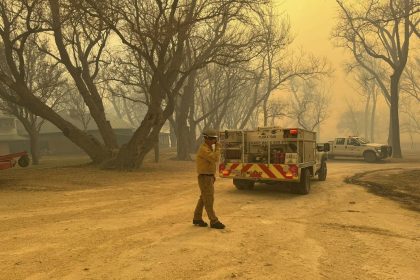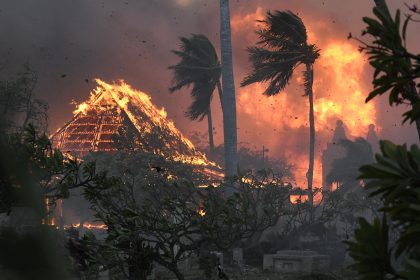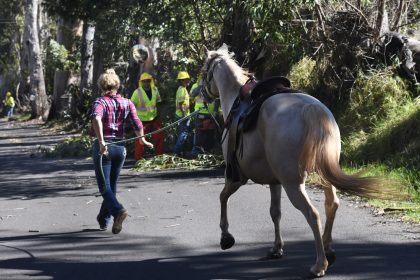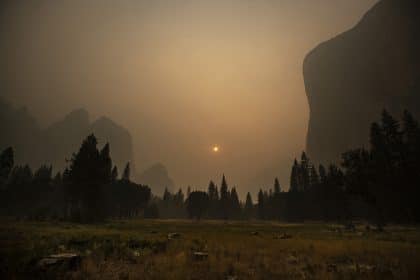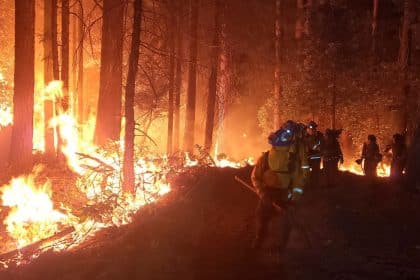California Utility Pleads Not Guilty to Manslaughter in Deadly Wildfire
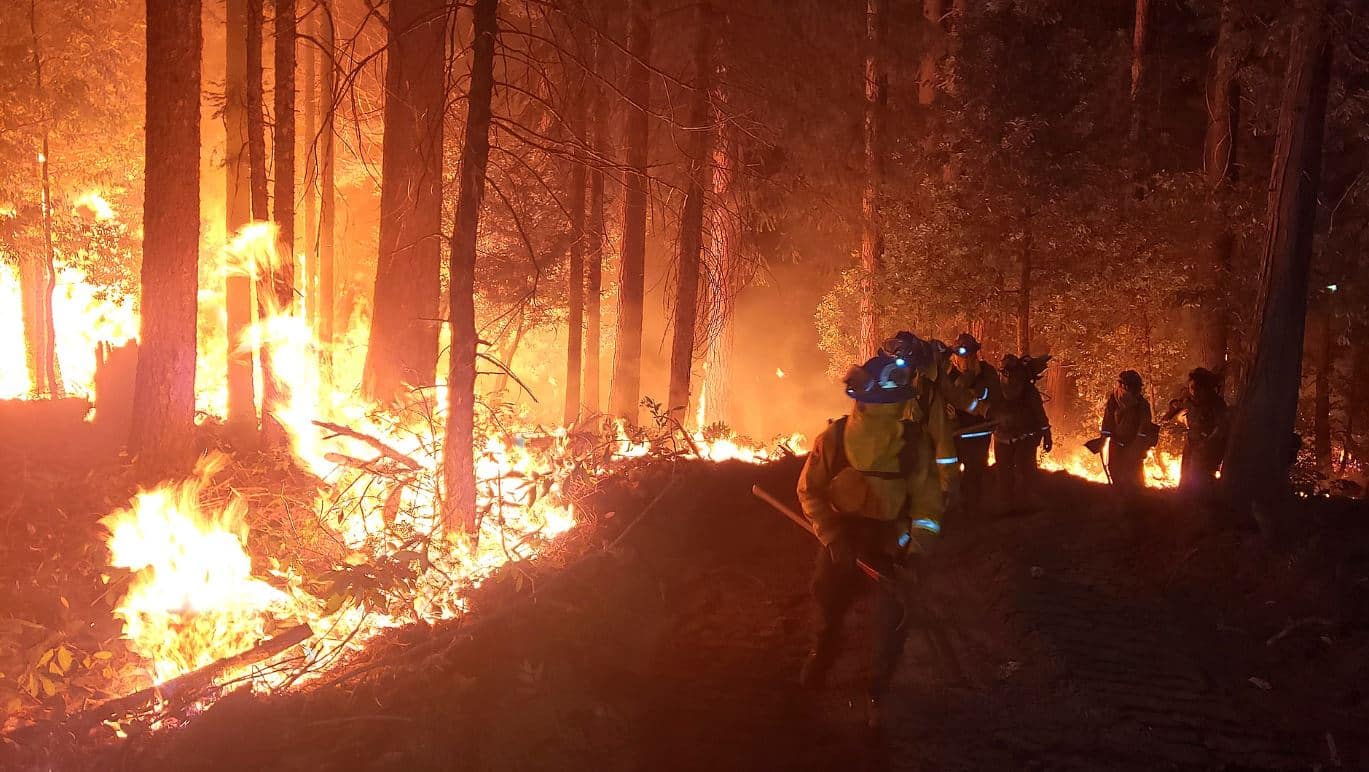
SACRAMENTO, Calif. — Pacific Gas & Electric pleaded not guilty Thursday to felony involuntary manslaughter charges after a Northern California fire caused by its electrical transmission lines burned 87 square miles of land and killed four residents.
Prosecutors acknowledge criminal charges are unusual against a public utility but say they felt compelled to take action after a spate of similar fires.
PG&E could have done a better job of trimming back trees but instead allowed them to become the fuel that started wildfires after touching power lines, prosecutors say.
If convicted, the punishment would be fines and a court order of remedial measures. Because a corporation is not a person, no one could be sentenced to jail.
“We accept [the California Department of Forestry and Fire Prevention’s] finding that a tree falling into our equipment started the fire, but we do not believe there was any criminal activity,” PG&E said in a statement.
The criminal case appears to be a sign of the times as public frustration grows over western wildfires intensified by global warming.
An April 11, 2022 Harvard Law Review article predicted, “Climate change will necessarily impact the frequency and types of conflicts that arise between people; to the extent the criminal justice system is called upon to address these challenges … local prosecutors will be at the forefront of that response.”
Shasta County District Attorney Stephanie Bridgett charged PG&E with 11 felonies and 20 misdemeanors in September but only Thursday did the utility enter its not guilty plea in the county court. A preliminary hearing is scheduled for next January.
“We have sufficient evidence to prove beyond a reasonable doubt that the Pacific Gas & Electric Company is criminally liable for their reckless ignition of the Zogg fire and the deaths and destruction that it caused,” Bridgett said when she filed the charges.
The Zogg Fire started Sept. 27, 2020, and was pushed by strong winds through a rural area and small communities, burning about 200 homes near Redding.
Three victims were killed in or near their vehicles as they tried to outrun the fire. A fourth died in a hospital.
State fire investigators determined a gray pine tree that fell onto a PG&E distribution line ignited the fire.
Attorneys for Shasta and Tehama counties said when they sued the utility that it failed to remove the tree despite the fact it had been marked for removal two years earlier. PG&E responded that the tree later was cleared to remain.
The Zogg fire was one of several in which PG&E was accused of wrongdoing. The wildfires eventually drove the utility into bankruptcy.
In April, the utility agreed to pay $55 million to settle claims from the 2019 Kincade Fire and the 2021 Dixie Fire. Investigators blamed power lines for both of the fires.
The Dixie fire was the second worst in California history. It killed one person, burned 963,309 acres and destroyed several small towns over three months before it was extinguished on Oct. 25, 2021.
A faulty PG&E transmission line was blamed in the 2018 Camp fire, which was the deadliest wildfire in California history after killing 85 people. It destroyed the town of Paradise.
PG&E has pledged to spend $15 billion to bury its power lines in underground cables. It is the nation’s largest public utility with more than 16 million customers in central and northern California.
The utility was forced into a Chapter 11 bankruptcy filing in January 2019 as it faced billions of dollars in liability from wildfires and added costs of remediation.
It was spared from potential shutdowns of service after a bankruptcy judge approved its $59 billion reorganization plan and PG&E won legislative approval to share in a $21 billion state fund to cover the costs of wildfires caused by utilities’ equipment.
The criminal case is People of the State of California v. Pacific Gas and Electric, case number 21-0006622, in the Superior Court of the State of California, County of Shasta.
Tom can be reached at [email protected] or on Twitter at @tramstack.

















